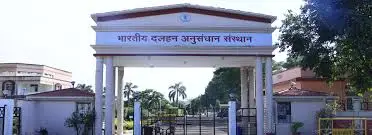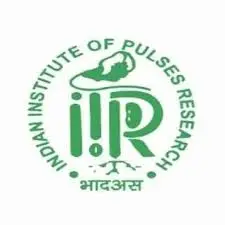
Indian Institute of Pulse Research, Kanpur

Overview of the Indian Institute of Pulse Research, Kanpur:
The Indian Institute of Pulse Research (IIPR) is a leading Indian research institution devoted to the cultivation, management, and enhancement of pulse crops. The Indian Institute of Pulse Research (IIPR), which was established in 1983 under the auspices of the Indian Council of Agricultural Research (ICAR), focuses on meeting the requirements of pulse farmers by developing new varieties, increasing productivity, and offering novel farming methods. India’s nutritional requirements and food security depend on pulses, a key protein source. Improved availability and quality of pulse crops like chickpeas, pigeon peas, lentils, mung beans, and urad beans are made possible by IIPR.
Mission and Vision :
The IIPR’s mission is to:
Boost the Production of Pulses: To increase agricultural output, cultivate varieties of pulse crops that are resistant to pests, high yielding, and climate-resistant.
Encourage Eco-friendly Agriculture: Concentrate on environmentally friendly, long-term farming methods that boost soil health and reduce chemical inputs.
Improve Food Security: By making pulses, a key protein source, more easily and affordably available, you can help ensure the nation’s food security.
Research, extension, and training are all part of the institute’s mission to empower pulse farmers, encourage innovation, and address the challenges that the pulse cultivation industry faces.
Focus of the Research:
The research conducted at IIPR focuses on a wide range of pulse cultivation-related topics. These are some:
Development of the Plant:
new varieties of pulse crops like chickpea, lentil, pigeon pea, and mung bean that are resistant to disease, high-yielding, and climate-resistant.
Pulses’ nutritional value, particularly their protein content, is the subject of research.
Pulse Biotechnology:
Utilization of biotechnological instruments to enhance pulse crops. The goal of the research is to develop novel varieties that are able to withstand both biotic and abiotic stresses using methods of genetic engineering and molecular breeding.
Agronomy:
Advancement of feasible cultivating works on, including the productive utilization of water, composts, and irritation the board rehearses. Improved soil health, lower input costs, and improved crop management are all guaranteed by this research.
Research on crop rotation and cropping systems that maintain soil fertility while simultaneously increasing farm productivity.
Disease and Pest Control:
To lessen the harm that pests and diseases do to pulse crops, scientists at the IIPR are working on eco-friendly methods of pest and disease management.
To ensure safer and healthier crops, integrated pest management (IPM) methods are promoted to reduce chemical pesticide use.
Pulse Varieties That Are Climate-Resilient:
Research into how pulse production is affected by climate change, including the creation of heat- and drought-resistant varieties.
The institute focuses on breeding pulses that are able to adjust to changing conditions in the environment, ensuring stable production even in harsh climates.
Technology After Harvest:
Improvement of pulse post-harvest loss reduction technologies. This research is absolutely necessary to guarantee that more of the harvested crops reach consumers unspoiled.
Water and Soil Management:
Pulse crops’ water efficiency and soil health are the subjects of research. Conservation agriculture practices, which aid in maintaining soil fertility and moisture, are included in this.
Infrastructure and Facilities:
IIPR has cutting-edge facilities and infrastructure to support pulse cultivation research. Key characteristics include:
Testing Facilities: modern laboratories with the most recent equipment for genetic, molecular, plant pathology, and biotechnology research.
Field experiments and greenhouses: In order to test new pulse varieties in real-world conditions, IIPR maintains extensive field plots and controlled greenhouses for plant breeding experiments.
Collection of germplasm and seeds: Pulse germplasm, which is essential for breeding and research, can be found in large quantities at the institute. Researchers are able to develop new varieties that are suitable for various agroclimatic conditions thanks to this genetic diversity.
Information and Library Center: The IIPR has a large library with materials on biotechnology, agriculture, and pulse research to help students, researchers, and farmers with their academic and research needs.
Academic and Training Programs :
In addition to being a research institution, IIPR is a key player in agriculture sector capacity building. It provides farmers, students, and professionals in the agricultural industry with a variety of workshops and training programs:
Programs for Educating Farmers:
Farmers are educated on the most recent pulse cultivation techniques, pest management, and water conservation strategies through regular workshops and training sessions. Improving pulse yields and ensuring farmers’ economic security require these programs.
Opportunities for Student Internships and Research:
Students pursuing degrees in agriculture, biotechnology, and related fields can take advantage of internships and research opportunities at IIPR. Practical experience in crop management and pulse research is provided by these programs.
At IIPR, PhD and postdoctoral researchers can also contribute to the advancement of pulse cultivation knowledge by working on projects.
Collaboration with academic institutions:
In order to facilitate joint research projects, academic exchange programs, and initiatives for building capacity, the institute collaborates with various universities and agricultural research centers.
Partnerships and Collaborations The IIPR collaborates with a number of national and international organizations to advance pulse cultivation research:
State Agricultural Universities and ICAR: In order to promote pulse farming practices and disseminate its findings, IIPR collaborates closely with ICAR and various Indian agricultural universities.
Collaborations on a global scale: To share knowledge and technologies for enhancing pulse production worldwide, the institute collaborates with international organizations like the International Crops Research Institute for the Semi-Arid Tropics (ICRISAT).
Through its research and extension activities, the IIPR has made significant contributions to the Indian agricultural sector:
Improvement of Existing Varieties: A number of high-yielding, pest-resistant pulse crop varieties developed by IIPR over time have been adopted by Indian farmers.
Increasing Efficiency: Improved farming methods have been developed as a result of IIPR research, boosting pulse crop productivity and profitability.
Food safety: In order to ensure that pulses continue to be a cost-effective and readily available protein source for millions of people, IIPR is improving pulse production.
Plans and initiatives for the future:
The IIPR’s research agenda continues to be focused on addressing these issues as India continues to face challenges related to climate change, soil degradation, and food security. The institution intends to:
Increase the number of climate-tolerant crops: In order to guarantee stable production in the face of climate change, IIPR intends to accelerate its research on heat- and drought-tolerant pulse varieties.
Expand the reach of farmers: The institute intends to expand its extension programs in order to educate a greater number of farmers about sustainable pulse farming methods.
Address: Kanpur, Uttar Pradesh, India, Indian Institute of Pulse Research (IIPR), 208024
Courses/Programs
| Serial# | Title | Estimated Cost | Program type |
|---|
